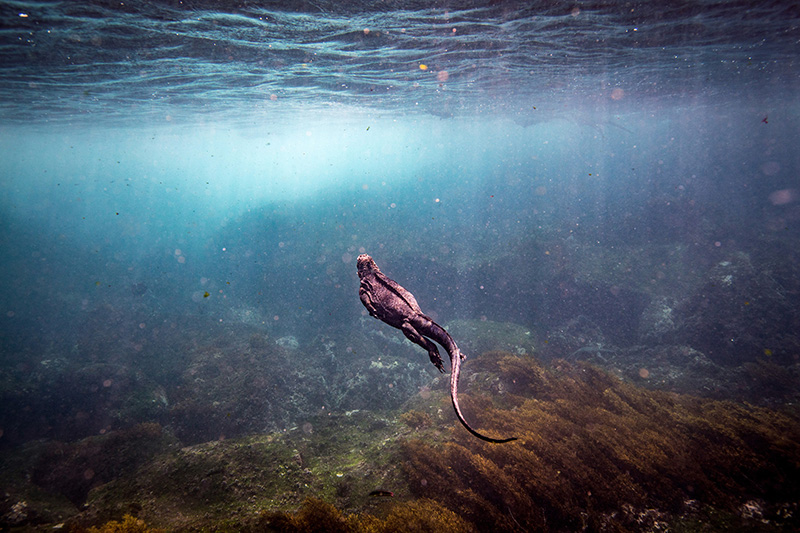Category: Science & Natural History—Singles
First Place
Nanna Kreutzmann / Freelance
“Untouched: School of Jack Fish”
Second Place
Martin Edström / Freelance
“Everest Trash”
Third Place
Josh Haner / The New York Times
“Swimming Iguana”
Award of Excellence
Roie Galitz / Freelance
“Spirit of the Forest”
Award of Excellence
Roie Galitz / Freelance
“Polar Bear Family in a Melting World”
Award of Excellence
Neil D'Cruze / Freelance
“The Last Dance”

Third Place
“Swimming Iguana”
A marine iguana underwater near Cabo Douglas off Fernandina Island in the Galapagos Islands, Ecuador, on Nov. 13, 2018.
As algae decreases with rising ocean temperatures, scientists believe that marine iguanas may reabsorb parts of their skeleton in order to decrease their size and increase their chances of survival on a smaller diet. Martin Wikelski, an evolutionary biologist at the Max Planck Institute of Ornithology in Germany, was spending his research seasons off the coast of Genovesa Island when he noticed that as the seas warmed, the size of the iguanas started to decrease. Little more is understood about how the iguanas do this, other than that the adaptation may be central to their survival as El Niño cycles become more frequent.



